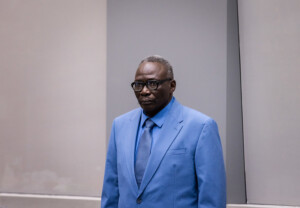Khartoum holds its breath for US sanctions decision
The US Dollar has risen sharply against the Sudanese Pound a day before the decision is due on whether the USA will lift financial sanctions on Sudan.
The US Dollar has risen sharply against the Sudanese Pound a day before the decision is due on whether the USA will lift financial sanctions on Sudan.
Yesterday the price of a dollar rose to to SDG19,5 and observers expect the rate will reach SDG20 soon.
Economic expert Dr Sidig Kabello attributed the continued fall of the Sudanese Pound to, what he called, the destructive economic policy of the state. “In return for the increase of its spending through administrative laxness […] and the wars in large parts of the country.”
Kabello told Radio Dabanga that another reason for the rising price of the dollar is the announced expectation of the Minister of Finance. He said to lift subsidies on some goods, in the event the US Secretary of State reports to President Donald Trump tomorrow that Sudan has made sustained progress in several fields and the Trump administration decides to indefinitely lift sanctions.
Kabello: “The government intends to lift subsidies on some commodities. Because of the lack of subsidies on commodities, traders have been prompted to store and exchange goods in US dollars, until further announcements by the government.
“The wealthy in Sudan resorted to buying dollars, also awaiting the US decision tomorrow, all of which leads to the increase in the demand for the dollar.”
Khartoum prepares
In Khartoum, the government announced that it will reject any resolution from Washington other than a complete lifting of sanctions.
Foreign Minister Ibrahim Ghandour said any decision not to lift the sanctions will be “unreasonable and unacceptable”.
“This is a right of Sudan, which has fulfilled all its commitments to the United States. […] Sudan is looking forward to the right decision to lift the sanctions completely.”
The Speaker of the Sudanese Parliament, Ibrahim Ahmed Omar, warned of escalation and mobilisation against the US in the event that its administration decides not to lift the sanctions. He advised the parliament to “stay away from the policy of reactions” in dealing with the issue.
Sanctions, criteria
US imposed the sanctions in November 1997 by executive order after Sudan was accused of being a “state sponsor of terrorism”. The order blocked all Sudanese government assets in the US and barred all trade transactions involving certain persons in Sudan.
In the end of 2016, Washington began working on the criteria for partially lifting the sanctions for a period of six months (though Sudan remains branded as a sponsor of terrorism), after which it may decide on a permanent lifting.
The five criteria under assessment include the ceasing of offensive military activities and providing more access to humanitarian organistions in Sudan, and it does not include the improvement of the human rights situation; a benchmark which dozens of US Congressmen, human rights watchdogs and activists find missing.











 and then
and then